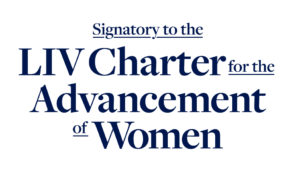On 2 September 2021, the Sex Discrimination and Fair Work (Respect at Work) Amendment Bill 2021 (Respect@Work Act) passed both houses of Parliament.
In passing the bill, the Government has adopted six of the 55 recommendations by the Australian Human Rights Commission following its world-leading National Inquiry into Sexual Harassment in Australian Workplaces, Respect@Work.
Once the bill receives Royal Assent, it will make key legislative changes to the following acts:
- The Sex Discrimination Act 1984 (Cth)
- The Fair Work Act 2009 (Cth)
- The Australian Human Rights Commission Act 1986 (Cth)
What are the major changes to be made to the Sex Discrimination Act 1984 (Cth)?
- The Act makes it clear that its objective is to achieve, so far as practicable, equality of opportunity between men and women.
- It is now expressly unlawful to harass a person on the grounds of their sex (sex-based harassment).
- The application of the Act has been expanded to expressly protect all workers and workplaces from sexual harassment.
- The scope of the Act is broadened to allow for complaints to be made both by and against members of Parliament, Commonwealth, state and territory judges, and state and territory public servants.
- Existing accessorial liability provisions will now apply to the conduct of a person who caused, instructed, induced, aided, or permitted sexual or sex-based harassment by another person.
- Civil Action for unlawful discrimination in the Federal Court or the Federal Circuit Court can be brought by a person who is victimised as a result of making a complaint.
What are the major changes to be made to The Fair Work Act 2009 (Cth)?
- The Fair Work Commission will now be able to make stop orders to prevent sexual harassment in the workplace, making sexual harassment part of the FW Act’s anti-bullying regime. A stop order will be granted if the FWC is satisfied that sexual harassment has occurred and is necessary to prevent future harm.
- Sexual harassment is now expressly provided to be a valid reason for dismissal in determining whether a dismissal was harsh, unjust or unreasonable.
- Two days of paid compassionate leave can be granted if an employee or their partner has a miscarriage.
What about the Australian Human Rights Commission Act 1986?
- The period of time to make a complaint following the alleged unlawful conduct has been extended from six months to two years.
A culture we all have to change for the better
It is crucial that workplaces are proactive in implementing measures that create a safe environment where victims and witnesses are empowered to report harassment and other inappropriate behaviours.
As Scott Morrison mentioned in his response to the Respect@Work Report,
“This is a culture that we all have to change for the better across our society, by changing our behaviour.”
The time is now for businesses to reassess and update their sexual harassment policies and training to reflect the changes reflected to the law above.
Workplaces should also actively record sexual harassment risks metrics and implement a prevention plan that strives to make the workplace safer and inclusive.
Charter for the Advancement of Women
Elit Lawyers by McGirr & Snell is proud to be one of the first signatories to the Law Institute of Victoria’s Charter for the Advancement of Women.
Our Co-Founder and Director, Danielle Snell sits on the Law Institute of Victoria’s Diversity Committee (Sexual Harassment Working Group) and is passionate about uniting the legal profession to make a real difference for women in the legal sector.
For a confidential discussion to discuss any concerns you may have and find out more about the complaints process available to those who have experienced sexual harassment and/or bullying in the workplace, please contact Danielle Snell.
